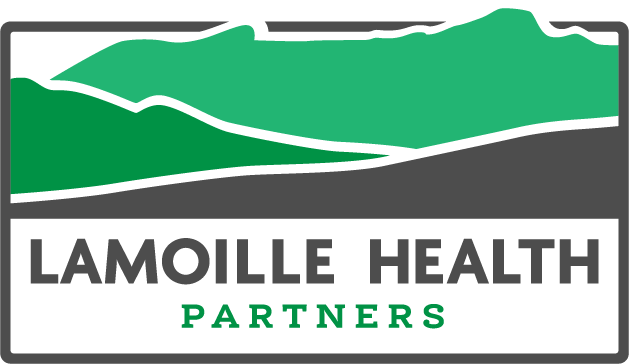By Melissa Volansky, MD, Lamoille Health Partners Family Medicine
Patients come to medical appointments with many things on their minds. Human beings are multidimensional, bringing a wide range of health-related concerns into the exam room with them.
Your Lamoille Health Partners team believes whole person care is the best pathway to overall health and wellness. Whole person care considers all facets of you as an individual — not just your medical conditions.
The whole person model of care acknowledges that your health depends on many different elements. It includes psychological and social aspects. Depending on which forces are having the strongest effect on health, everyone’s needs will be different.
Some people need help finding a nutrition plan that is affordable and easy to follow. Others need help arranging and getting to follow-up appointments or understanding their insurance coverage. Others struggle with stress, anxiety, food insecurity, relationship problems, and more.
The National Institutes of Health defines whole person care as a model for:
- Restoring health
- Promoting resilience
- Preventing disease
Why is whole person care important for good health?
People exist on a spectrum where they can move closer to health or closer to disease. Some barriers along the way can be changed while others cannot. The genetic complement of traits and risk factors you inherited from your parents does not change. But many factors that affect health are modifiable.
Learned habits and behaviors such as poor diet, chronic stress, and poor sleep can change. Social aspects like where you live, whether your home is safe, and how well you can access medical care have solutions both systemic and personal. Addressing these helps move you closer along the path to health.
Whole person care aims to address all the things that can be changed or improved. That includes getting treatment for mental health concerns, learning how behavior change works, receiving assistance to navigate the healthcare system itself, or finding community resources that keep you moving in the right direction.
What research shows about whole person care
One study found than connecting behavioral health treatment and primary care for patients with depression significantly reduced depression for 50 percent of patients. Of those, 32 percent reported their depression improved by half.
Another study that’s been following patients since 1948 found that better access to physical and behavioral healthcare reduces the risk of heart attack and stroke. The healthy living options included quit-smoking plans, diabetes prevention, help with managing high blood pressure, and other health-focused programs.
These positive results show whole person care is an effective model for preventing and reducing adverse health outcomes.
Lamoille Health Partners’ approach to whole person care
Funded by the Vermont Blueprint for Health initiative, our Community Health Team is an essential part of our premier healthcare services. The team works across villages and towns, connecting patients with the education, programs, and social and financial services that make good health more attainable.
The Community Health Team ensures better care coordination, personal well-being, and health outcomes, all while keeping in mind the patient’s own preferences and choices. Our team consists of care coordinators and case managers who are registered nurses, registered dietitians, certified diabetes educators, psychologists, and social workers. The team works alongside your primary care practitioner to provide education and support.
Team members help patients navigate the healthcare system, find affordable prescription medications, and manage complicated medical conditions.
They can enroll patients in healthy living programs that cover:
- Diabetes prevention
- Diabetes management
- Chronic medical conditions like hypertension, chronic pulmonary disease, and more
- Chronic pain
- Smoking cessation
The Community Health Team can help with completing financial assistance applications, applying for health insurance, connecting to transportation services, finding affordable housing, and much more. With its deep knowledge of the community resources available, as well as connections to help patients get started, the team addresses many factors that influence health.
If you would like to find out more about what the Community Health Team offers, talk to your primary care provider or visit the Community Health Team page on our web site. We’re here to help you live your happiest, healthiest life.

